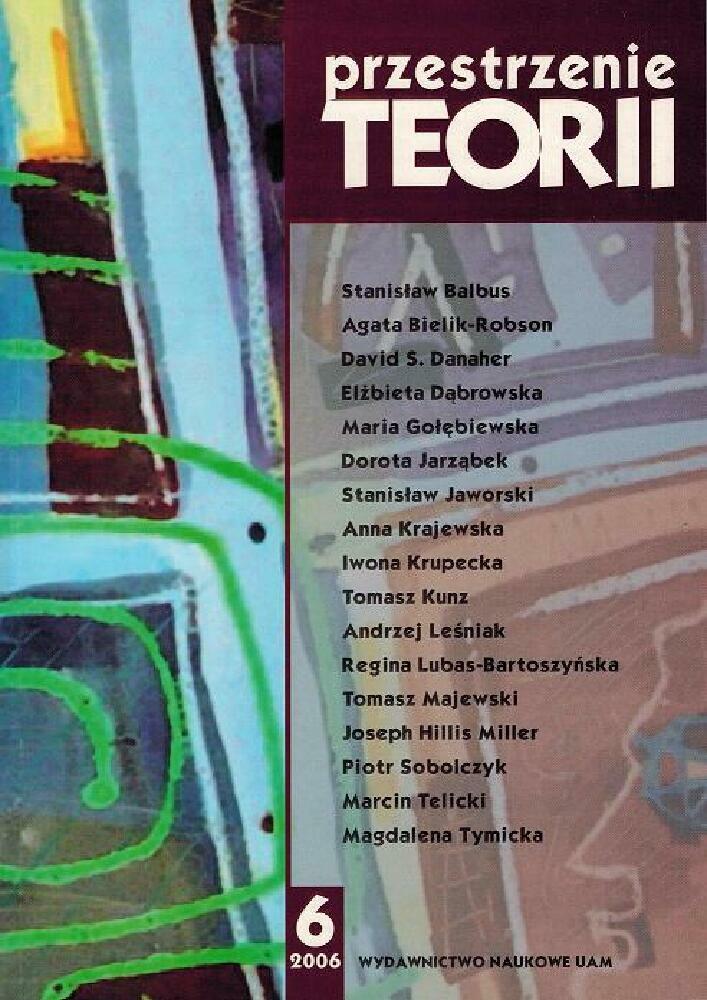Abstract
The article presents Stanisław Balbus, one of the most influential Polish literary theorists. Balbus (somehow like Barthes) began as a structuralist, but also practiced literary criticism of the interpretive mode, however later, during the time of the paradigm change in Poland, he evolved to the hermeneutics and to the interpretive paradigm. His case may be seen as typical, as one of a few ways of reacting towards a paradigm change. The author uses discourse analysis methods as well as a narrativist-constructivist methodology, and reads three books of Balbus: Między stylami (Between styles), Poezja w czasie marnym (Poetry in the weak time - about Tadeusz Nowak) and Świat ze wszystkich stron świata (The world from all the sides of the world - about Wisława Szymborska).License
Authors
Authors of texts accepted for publication in Przestrzenie Teorii are required to complete, sign and return to the editor's office the Agreement for granting a royalty-free license to works with a commitment to grant a CC sub-license.
Under the agreement, the authors of texts published in Przestrzenie Teorii grant the Adam Mickiewicz University in Poznań a non-exclusive, royalty-free license and authorize the use of Attribution-NonCommercial-NoDerivatives 4.0 International (CC BY-NC-ND 4.0) Creative Commons sub-license.
The authors retain the right to continue the free disposal of the work.
Users
Interested Internet users are entitled to use works published in Przestrzenie Teorii since 2015, for non-commercial purposes only, under the following conditions:
- attribution - obligation to provide, together with the distributed work, information about the authorship, title, source (link to the original work, DOI) and the license itself.
- no derivatives - the work must be preserved in its original form, without the author's consent it is not possible to distribute the modified work, such as translations, publications, etc.
Copyrights are reserved for all texts published before 2015.
Miscellaneous
Adam Mickiewicz University in Poznań retains the right to magazines as a whole (layout, graphic form, title, cover design, logo etc.).
